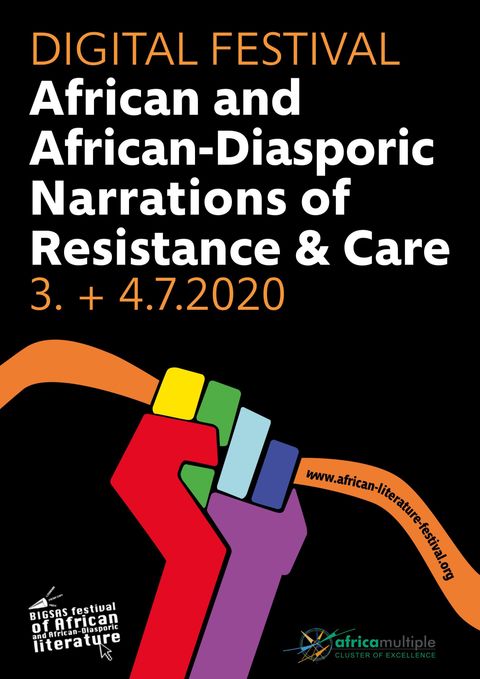Muhammed Alkhatib is a recently graduated student from Bayreuth University with a degree of Master in intercultural and Anglophone Studies. He studied English Literature at the University of al-Baath (Syria) then came to Germany in 2015. Alkhatib did some research on the representations of totalitarian state in the context of political litarature. Recrently, he is a doctoral candidate at Bayreuth University.


Maaya Ashash is based in Berlin and currently graduates from the Institute for Asian and African Studies at Humboldt University. She has placed her academic and activist focus on socio-political issues such as the Palestinian-Jewish strife for freedom, the class-based struggle of the Mizrahi women, as well as a migration and mobility justice in a decolonial context.

Caroline Assad is co-chairperson of WIR MACHEN DAS, an NGO committed to open, democratic and plural migration societies by means of employing art, literature, journalism and creative movement. Caroline Assad is also Fellow at the Young German Society for Foreign Affairs, with a focus on African Studies.
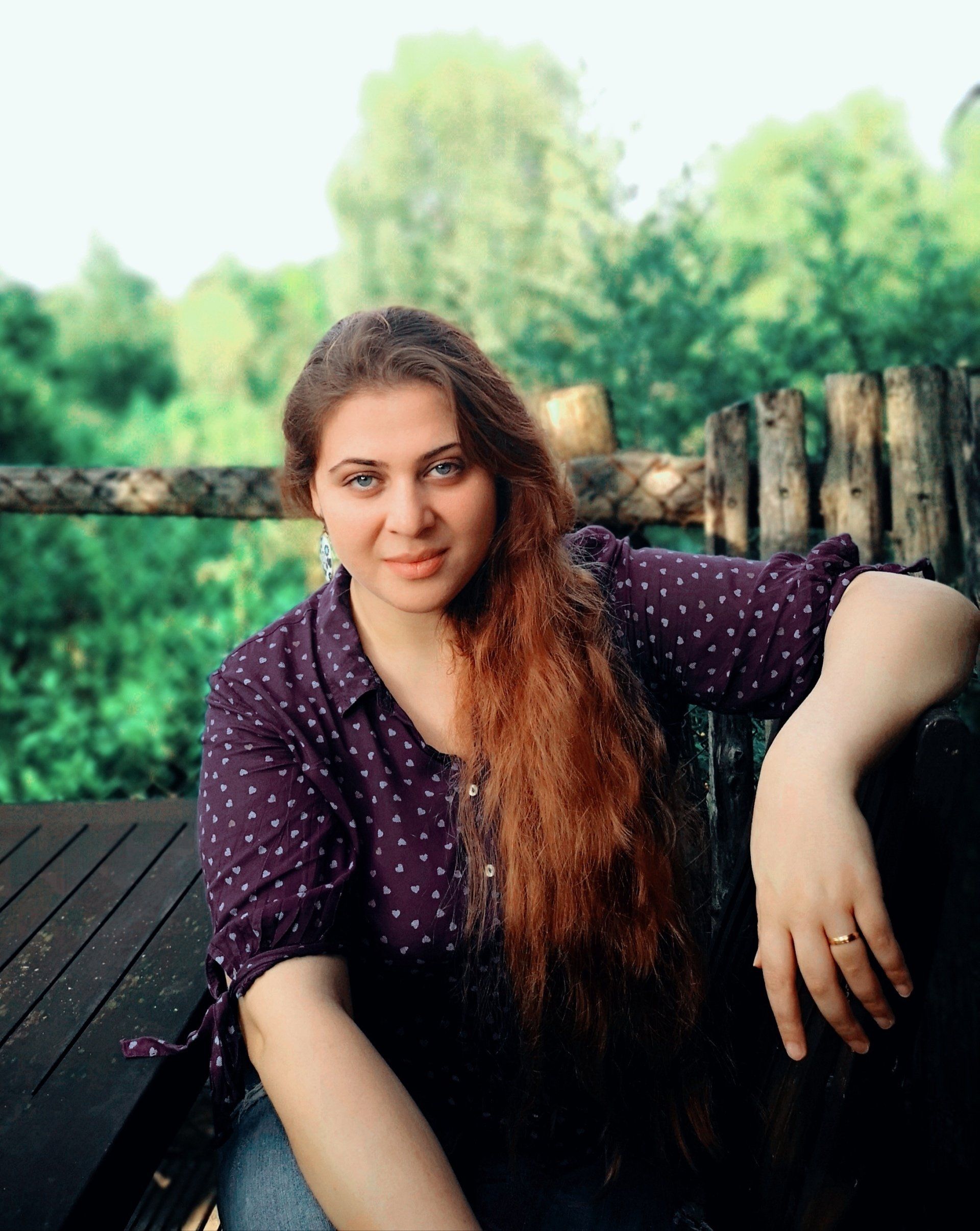
Lina Atfah, born in Salamiyah, Syria, in 1989, is a Syrian poet who has lived in Wanne-Eickel, Germany, since 2014. She studied Arabic literature at Damascusniversity. She writes regularly in different Arabic and German newspapers and cultural periodicals. In 2016 she has a published a poetry book in Arabic (At the Margin of Deliverance). She also contributed to different anthologies in German like Weg sein - Hier sein (2017), Deine Angst - dein Paradies (2018). Since 2017, she writes also for the writing project Weiterschreiben. In 2017 she received the Hertha König prize for young writers in Germany. In March 2018 she published her first bilingual poetry book in German (The Book of the Lost Arrival).
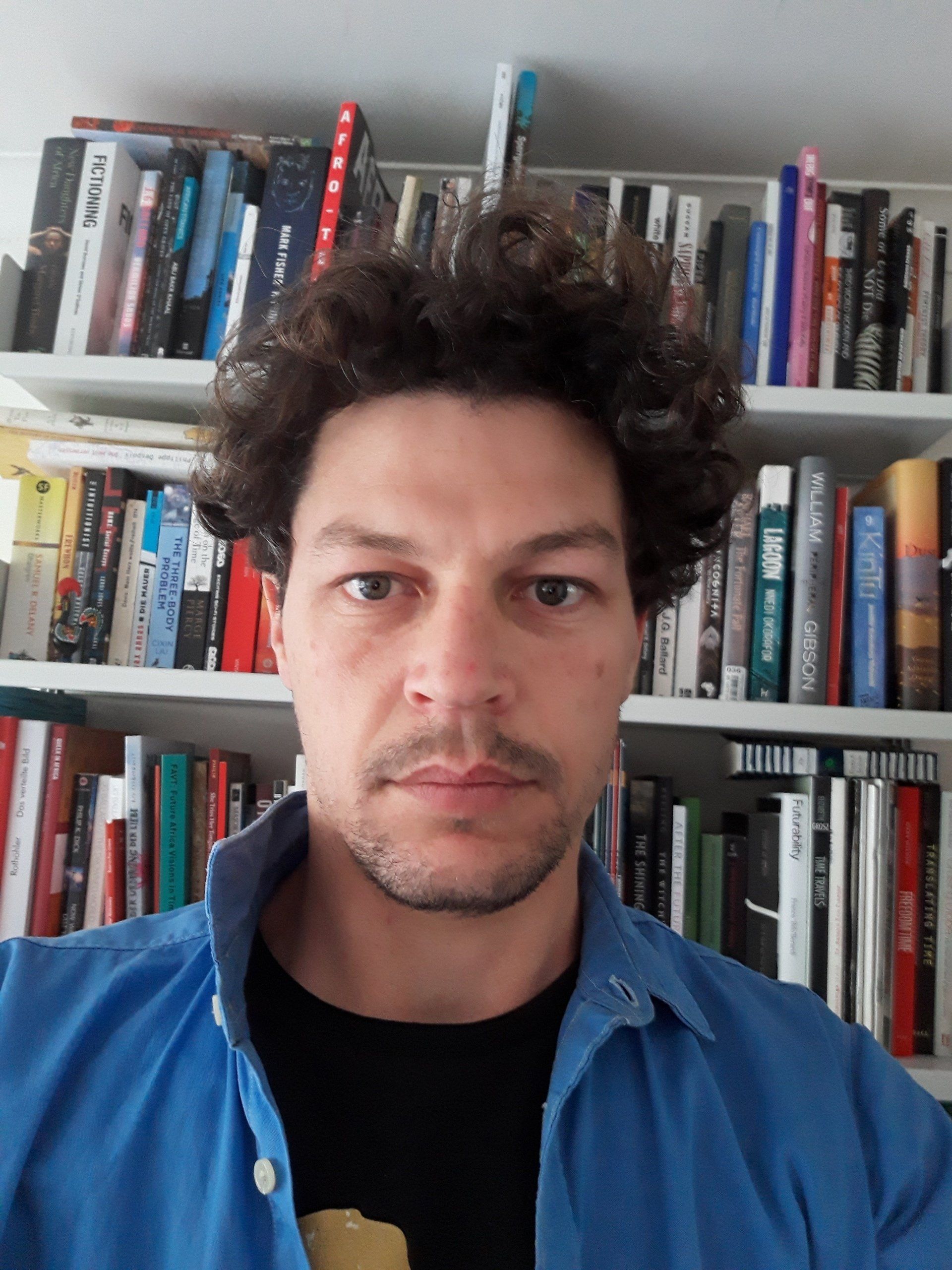
Renzo Baas is a post-doctoral research fellow at the University of KwaZulu-Natal, Durban, South Africa. He completed his PhD at the Bayreuth International Graduate School of African Studies
(BIGSAS), investigating Namibia as a fictional space during the colonial and apartheid eras as well as the Namibian Liberation Struggle. His thesis has recently been published by Basler Afrika Bibliographien under the title Fictioning Namibia as a Space of Desire.

BBXO makes a style of music they call “Future Blues”- as it sits between spoken word and rap, between politics and pop. They Formed when Krisz Kreuzer, of urban blues outfit Brixton boogie, met up with Musa Okwonga, a London-born poet who has recently moved to Berlin. BBXO hace crafted a bass-heavy and accessible sound that is urgent, passionate and powerful.

Tanu Biswas, M.A., Mphil., Junior Researcher at Department of General Pedagogy, University of Bayreuth; Research Areas Childism, Childhoods, Philosophy of Pedagogy; Affiliated guest researcher at the Institute for Lifelong Learning, Norwegian University of Science and Technology; Member of Ladakh Studies Association; Tanu has engaged closely with diverse childhoods in India (Ladakh, Goa, Pune District), Italy (Trentino-Alto Adige), Germany (Tübingen City) and Norway (Trondheim City). Her present focus is on suggesting a childist perspective for the pedagogy of philosophy in response to our era of Anthropocene Neoliberalism.
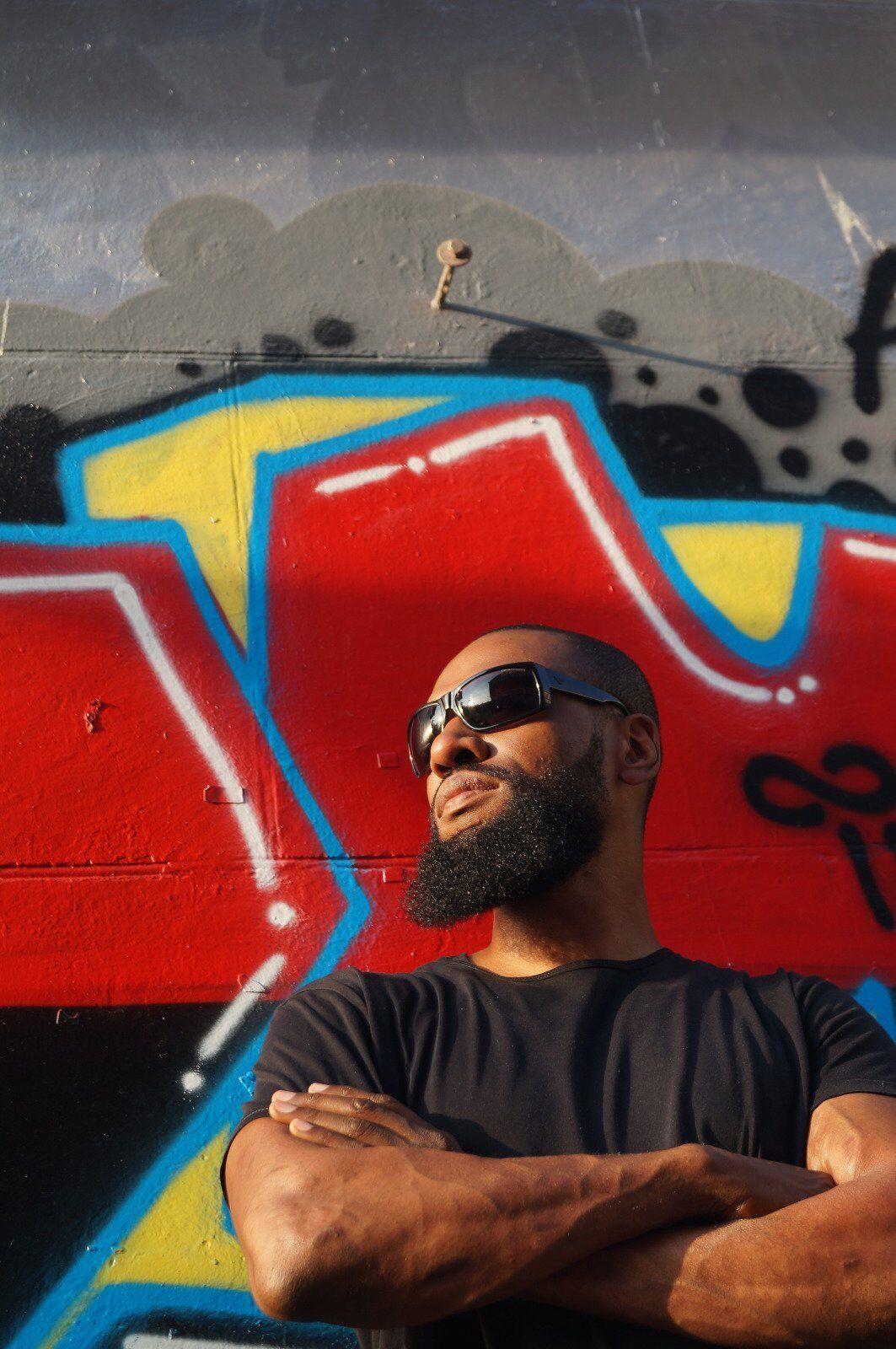
Blesz is an international spoken word artist, MC and DJ. His style is versatile, but recognizable and his tracks are characterized by honesty, love, passion and criticism.
He also is a producer and event organizer and the co-founder of Burgundy Productions. He has experience with recording musicians and engineering live sounds for bands. Currently he also is the producer, composer and engineer of the Word Up Podcast. BLESZ also hosts events and is involved in the organisation of a variety of popular events.

Shadreck Chikoti is a Malawian writer and social activist. He was listed by CNN as one of seven must-read African authors. He has won numerous literary awards including the 2013 Peer Gynt Literary Award with his futuristic novel, Azotus the kingdom, also shortlisted for Africa Nommo Awards for speculative fiction. He was recently nominated by the Africa39 project as one of the “most promising African writers under 40.” Chikoti’s work has also appeared in several anthologies, including the Caine Prize anthology To See the Mountain and Other Stories(2011), and in All The Good Things Around Us: An Anthology of African Short Stories. In 2018 he was the chief judge for Writivism short story competition. He is the director of Pan African Publishers and in 2013 he founded the Story Club, a space for literary enthusiasts. Chikoti views himself as an African futurist. In 2014 he curated an anthology, Imagine Africa 500, which carries African short stories from across the continent that focus on Africa 500 from now. He is one of the founders for the Plurality University, a space for birthing and facilitating futuristic innovations. In 2019 Chikoti is curating the Feminart Arts and Book Festival, which celebrates feminism, femininity and centers its themes around gender issue. He lives in Malawi with his wife and three children.
Faten El Dabbaz is a spoken word artist, author and political scientist living in Berlin. In her socio-critical yet personal texts, the observed and the experienced merge into one another. Borders blur and written images emerge in her probe into her relationship to her homeland and her feeling as an Arab, Palestinian, Muslim woman based in Germany. She has worked on war and crisis.
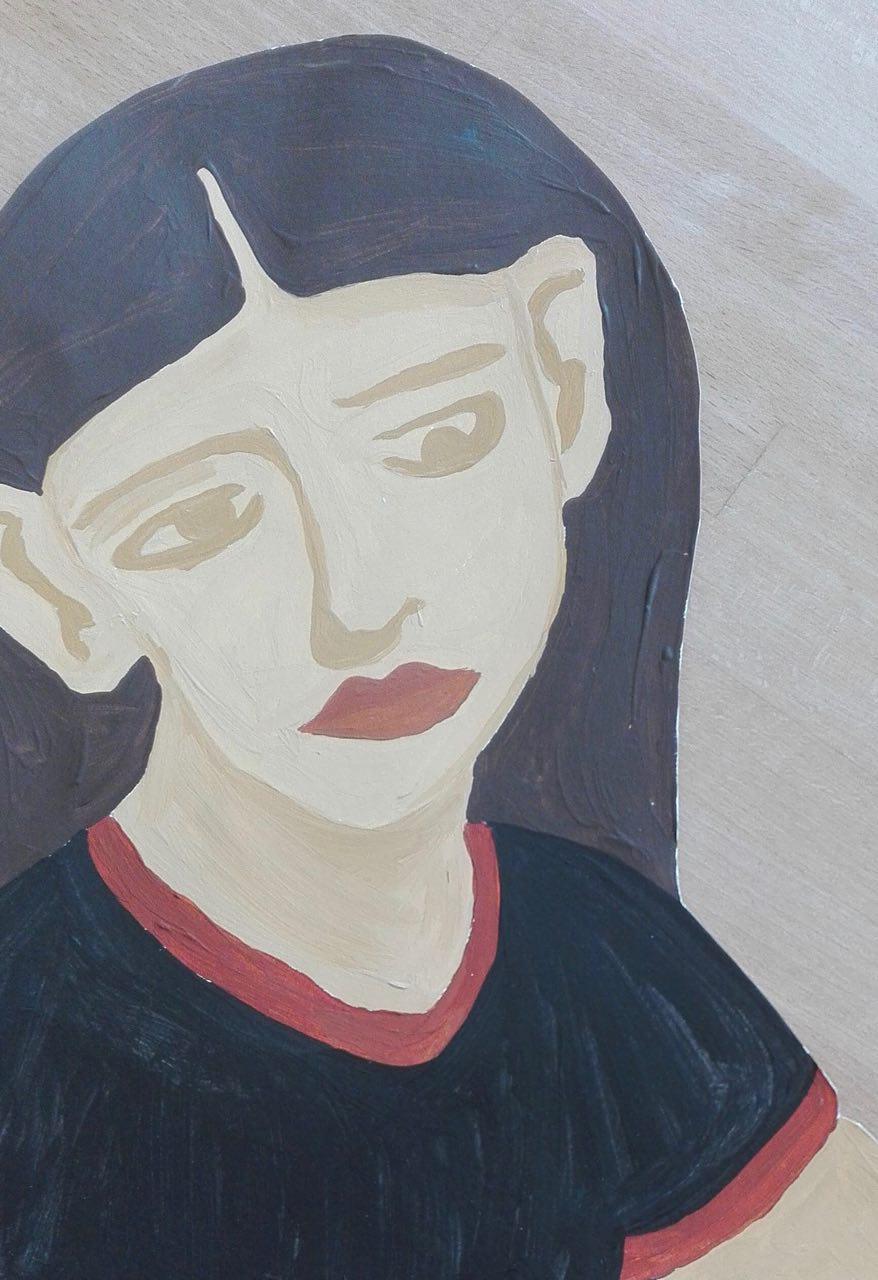
dilop considers herself a text sm*artist. Her novel project „Das Aufbrechen“ has been supported by various projects for young writers such as the Münchner Literaturhaus and wortmeldungen. She poignantly discusses the ruptures and dislocations that queer PoC tear in homogenous or binary identity politics.
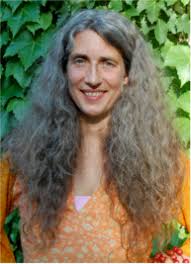
Julia Dittmann studied Film Studies (Free University, Berlin), History (TU, Berlin) and Gender Studies (Humboldt-University, Berlin). In 2017 she did her PhD in Media Studies at Bayreuth University. The PhD was published as „Ent-Täuschung des weißen Blicks. Rassismussensible Strategien für eine ideologiekritische Filmanalyse“ (2018). She lives in Berlin and works as freelance film director and scholar. She is co-editor if the book series Transcultural English Studies at edition assemblage, Münster.

As KANAKISTAN Taudy Pathmanathan and Tamer Düzyol organised the postmigrantic art and culture series “Welcome in KANAKISTAN” (Willkommen in KANAKISTAN, 2016) and “KANAKISTAN 2.0” (2017) in Erfurt to make (post)migrantic perspectives visible. One participant of the KANAKISTAN series sent one poem to the organisers which dealt with her experience and thoughts on this society. This “outcry” was one of the initial impulses for “HAYMATLOS”, a poetry collection which is focussing on rasicm, discrimination and migration stories. With “HAYMATLOS” Düzyol and Pathmanathan created a platform which bring together different perspectives und unite them.

Katharina Fink, Dr. phil, is a BIGSAS Alumna and researcher at the Bayreuth Academy of Advanced African Studies, working on fashion and revolution in Africa. She is co-editor of Iwalewahaus and an experiences curator, activist and cultural manager.

Hamody Gannam is a Palestinian-Israeli mixed media artist based in Haifa. He majored in visual arts and graphic design and specialised in photography. His focus lies on shedding light on the narratives of the local community by confronting national and social identities through photographic and interactive art work.
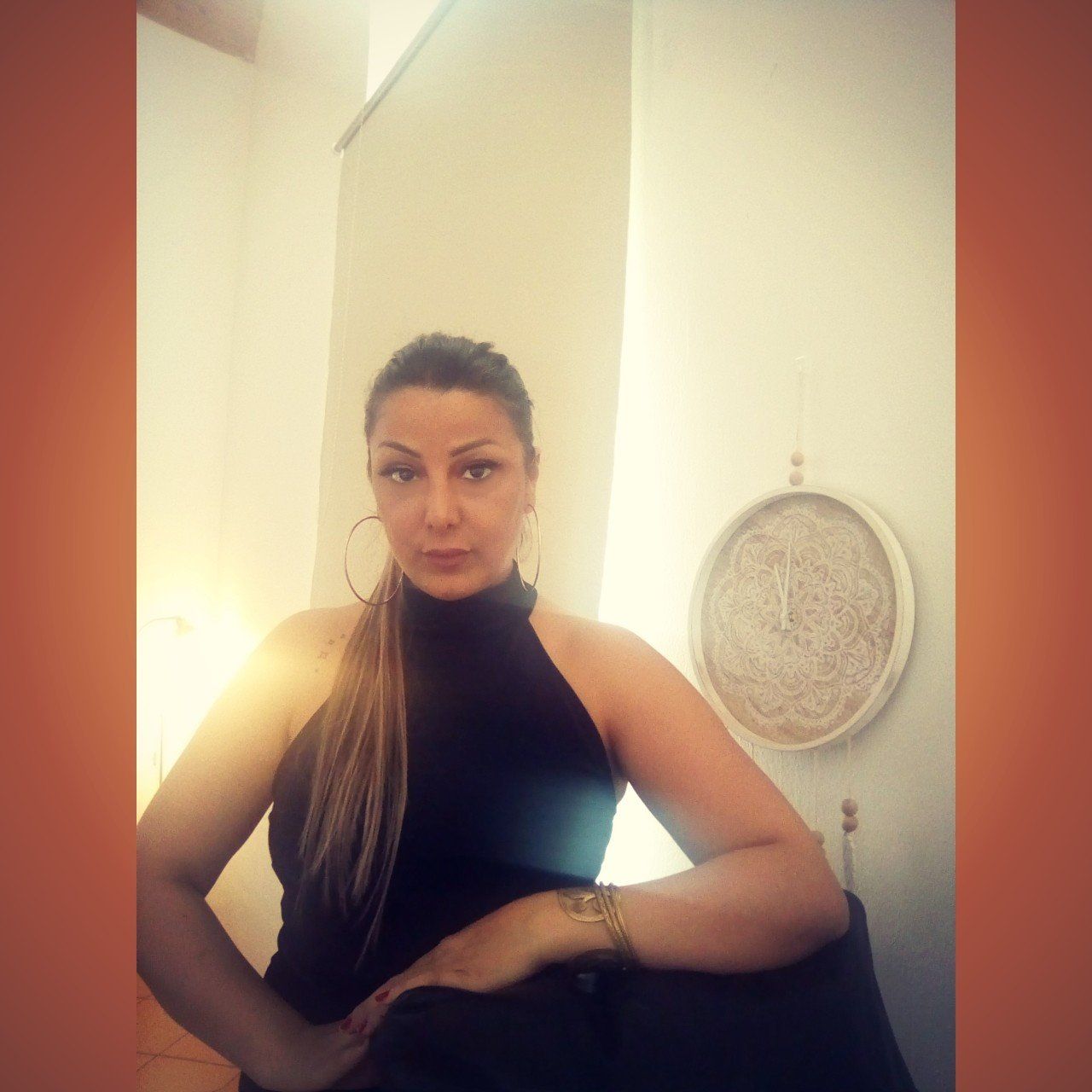
Rabab Haidar studied humanities with a major in English literature from the University of Tichreen, Syria. She lives in Germany as a Heinrich Böll fellow, after winning the Heinrich Böll writing grand last October 2018. She works with Weiter Schreiben Writer. As a columnist, Rabab Haidar writes for various newspapers and journals in Germany and the Arabic world like Die Zeit, Deutsche Welle, and Abwab. Her first novel “Land of Pomegranate” was published in 2012. She is a member of the Syrian Women Network. Back in Syria she used to work as a translator (Arabic-English-Arabic) as well as columnists and held many workshops on Creative writing.
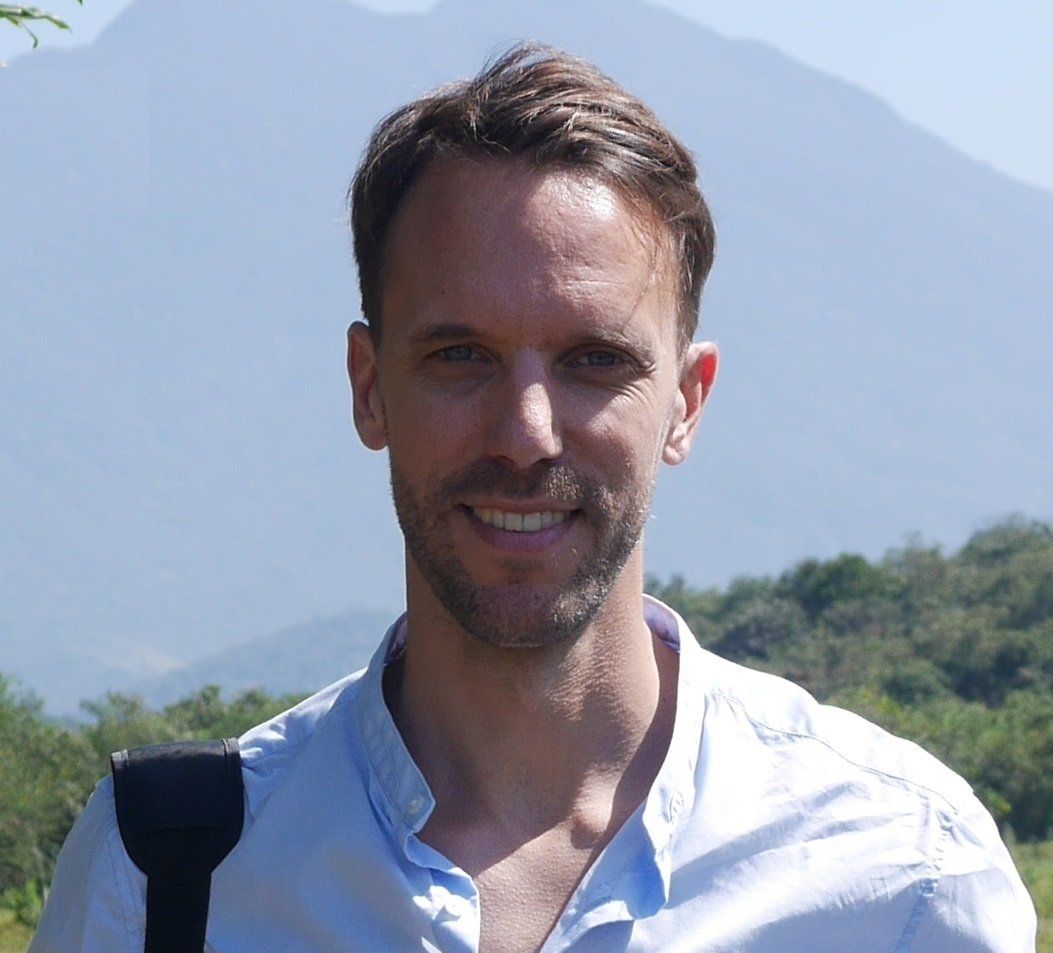
Jan Simon Hutta is Assistant Professor at the University of Bayreuth, working in the Cultural Geography Research Group. His research focuses on formations of power, affect and citizenship in Brazil, sexual and transgender politics, urban governmentality, and relations of subjectivity, movement and space. He is founding editor of the German-language open access journal on critical urban research 'sub\urban - Zeitschrift für kritische Stadtforschung'.

Kolade Igbasan is a PhD candidate in the field of Interpersonal Communication and Integration at Bayreuth University. He is a freelance poet and cultural
manager, addressing the power of aesthetic knowledge. Kolade Igbasan is a Nigerian. He is a trained journalist, language teacher, movie actor, African language and culture enthusiast and linguist with a master’s degree in Language, Interaction and Culture from the University of Bayreuth. Kolade is also a voluntary fire-fighter with the Freiwillige Feuerwehr Bayreuth. Kola has his academic background in Mass Communication and has worked in the print and electronic media in Nigeria. He has over 11 Nollywood films to his cap, one of which is “The Ambush” (2013) by Mount Zion Films Nigeria. A man of many parts, Kola founded the Nigerian German Culture Troupe (NGCT) in 2010 in Ibadan, Nigeria.
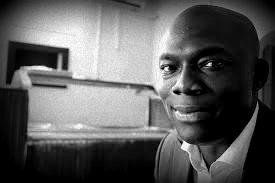
Elnathan John is a Nigerian lawyer, novelist and satirist. His short stories have been shortlisted twice for the Caine Prize for African Writing, in 2013 and 2015. His novel, Born on a Tuesday won a Betty Trask Award and was shortlisted for the Nigeria Prize for Literature. It has been translated into German and French and won the Prix Littéraire Les Afriques 2019. His most recent book — a satire collection Be(com)ing Nigerian, A Guide was published by Cassava Republic Press in 2019. On Ajayi Crowther Street, his graphic novel, will be published in November 2019. Elnathan was on the jury of the 2019 Man Booker International Prize. He lives in Berlin and is a 2019 recipient of the Berlin Senate grant for non-German literature.

Numaira Hamid Khan is a student of a Master program in Intercultural Anglophone Studies (MAIAS) at Bayreuth University, Germany. She is participating in the panel discussion in BIGSAS festival,2019 addressing the topic "Refugee (In) Crises."

Marie-Anne Kohl works as researcher and managing director at the Research Institute for Music Theatre, University of Bayreuth. With a background in artistic practice and feminist decolonializing activism, also her academic interests focus on Gender Studies, Music and Postcolonialism, Intersectionality, Voice and Vocal Music, Performance, Media and Popular Culture. Before she came to Bayreuth, she was co-director and chief curator of the Berlin-based art space alpha nova-kulturwerkstatt & galerie futura which promotes the interaction of artistic, theoretical and political practices with an explicit gender-critical perspective. Since its foundation in 2017 she is member of the Chadian-German non-profit associationTakatuf e.V.

Evelina Kvartūnaité is a producer and an event concept & branding executive as well as the co-founder of Burgundy Productions. She holds degrees in Engineering and Process Management as well as certifications in training, facilitation and life coaching. She has been working internationally as a trainer and facilitator since 2003 mostly with ICL, NVC, creativity, self-development, mediation, conflict management and gender issues. Currently she also co-hosts the Word Up Podcast and the creator/organiser of the Word Up and Outspoken platforms.
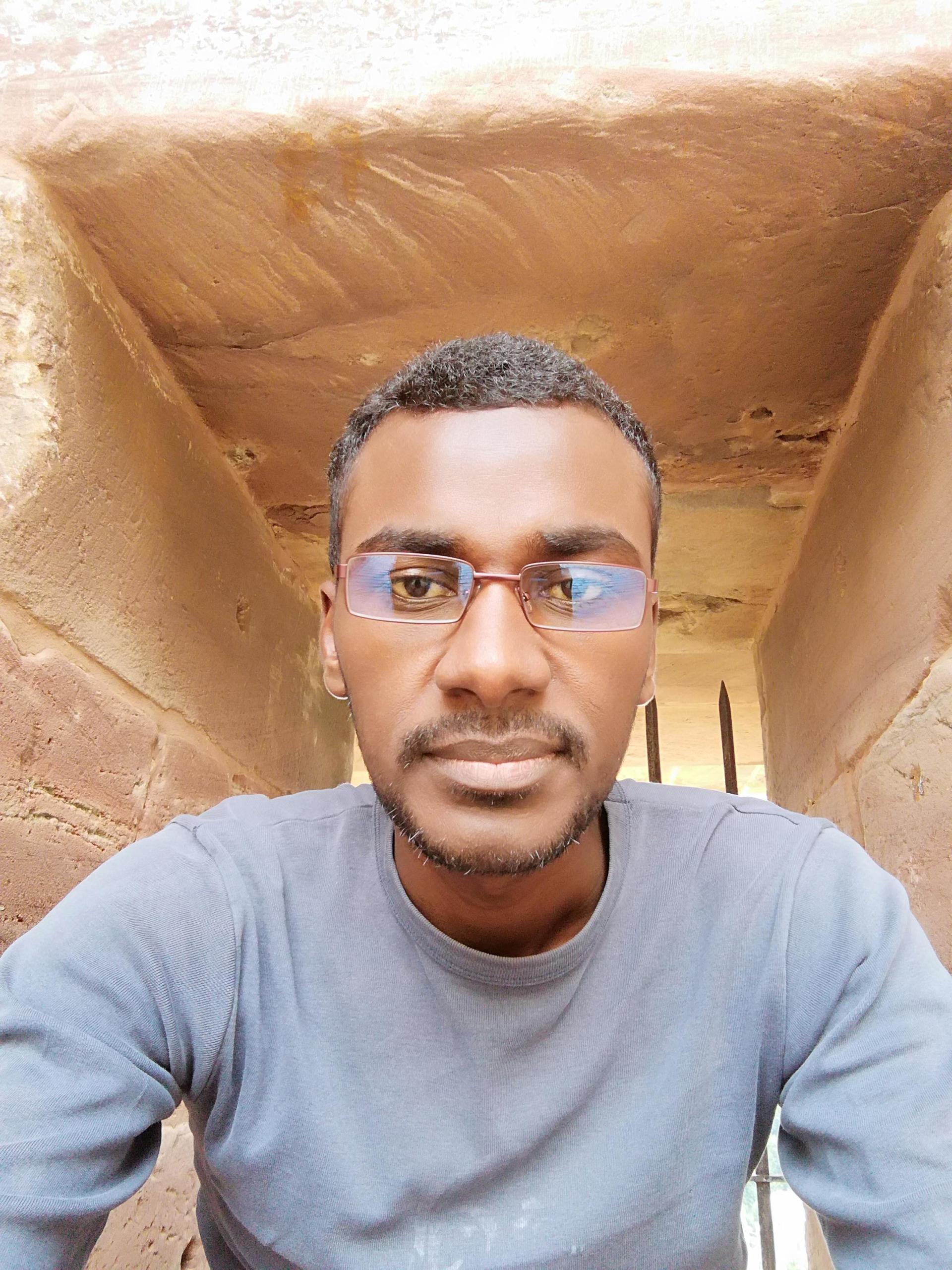
Ibrahim Mahamat zene is chairman of the non-profit association Takatuf e.V. He is from Chad and came to Germany in 2013. In 2017 he found Takatuf in Bayreuth, which is Arabic for “shoulder to shoulder”. The association aims at conveying Chadian culture within Germany, at Chadian-German intercultural exchange, and especially at
development cooperation projects in Chad such as support of subsistence or educational projects. Recently Takatuf e.V. started a primary school in the small village Tingel in the South of Chad, the only one of its kind for miles. The children’s book which will be developed in Bayreuth through several children’s workshops is also meant to initiate an intercultural exchange.

Alireza Mehdizadeh is an Iranian classical musician and Kamancheh instrumentalist. He has been core member of many well-known traditional ensembles namely, Homay and Mastan for years now. Alireza has performed over hundred concerts in Iran, North America, Europe, and Australia. Besides collaborating with Iranian ensembles, he has been actively collaborating with and contributing to modern and innovative takes of Iranian music, particularly Dastgah as well as Farsi Literature.
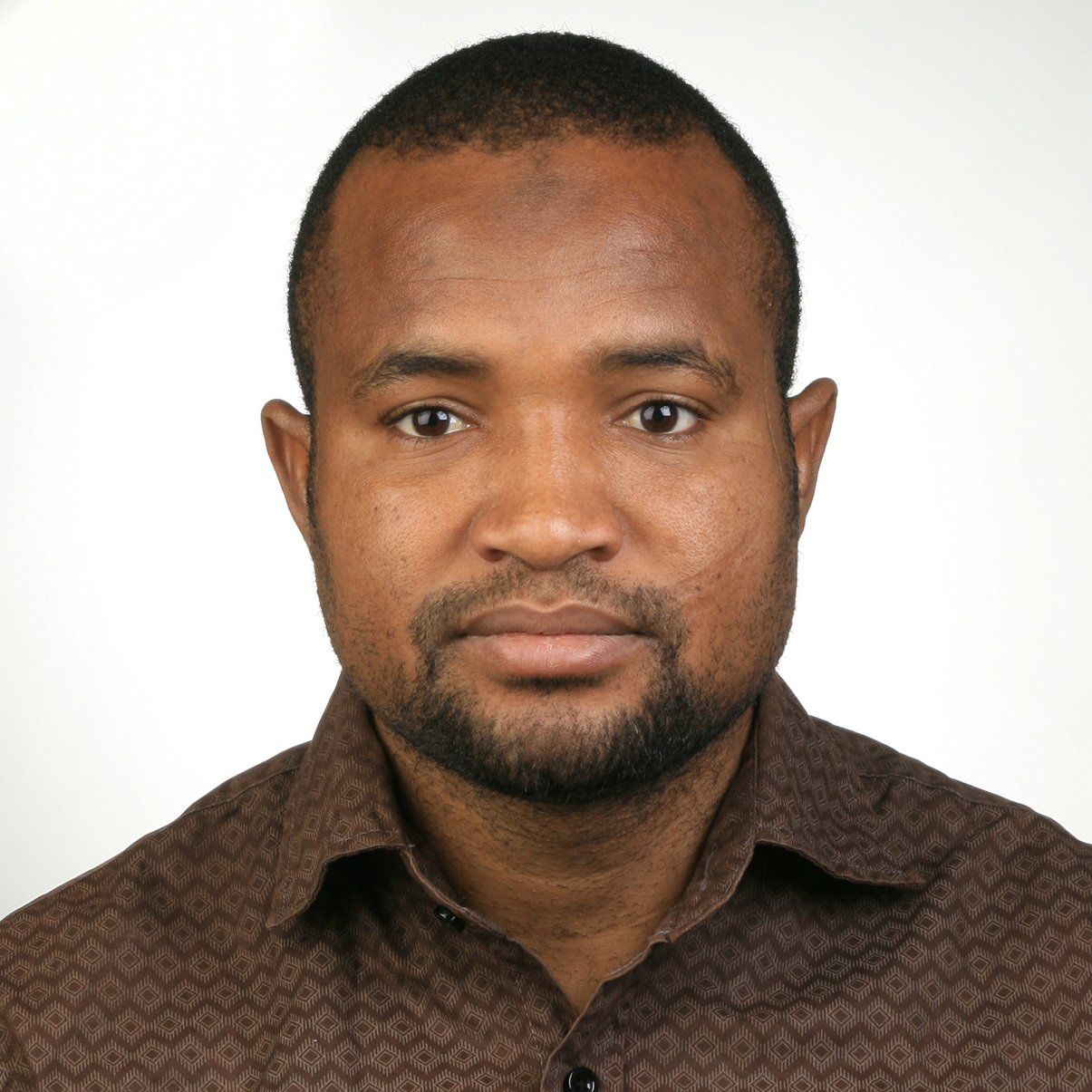
Dikko Muhammed is a BIGSAS Junior Fellow, working on Northern Nigerian women’s poetry. Being a poet himself, he also edits a volume on literary texts set in Bayreuth, Germany. Dikko Muhammad is an emerging writer from Northern Nigeria. He has three short stories that revolve around political corruption, insecurity and migration in the twenty-first century. The stories explore the character’s
lived experiences as factors that necessitate migration into a safer part of the planet. Dikko is also interested in poetry, short stories and life narratives. He is currently a Junior Fellow with
the Bayreuth International Graduate School of African Studies (BIGSAS) University of Bayreuth.
Oliver Nyambi teaches literary and cultural studies in the Department of English at the University of the Free State in South Africa. He is currently an Alexander von Humboldt Postdoctoral Fellow hosted by Susan Arndt at the University of Bayreuth. His research focuses on crisis/humanitarian literatures, life-writing, social media cultures, discourse and politics, and onomastics. His book Life Writing from the Margins in Zimbabwe: Versions and subversions of Crisis was published in May 2019 by Routledge Taylor and Francis.
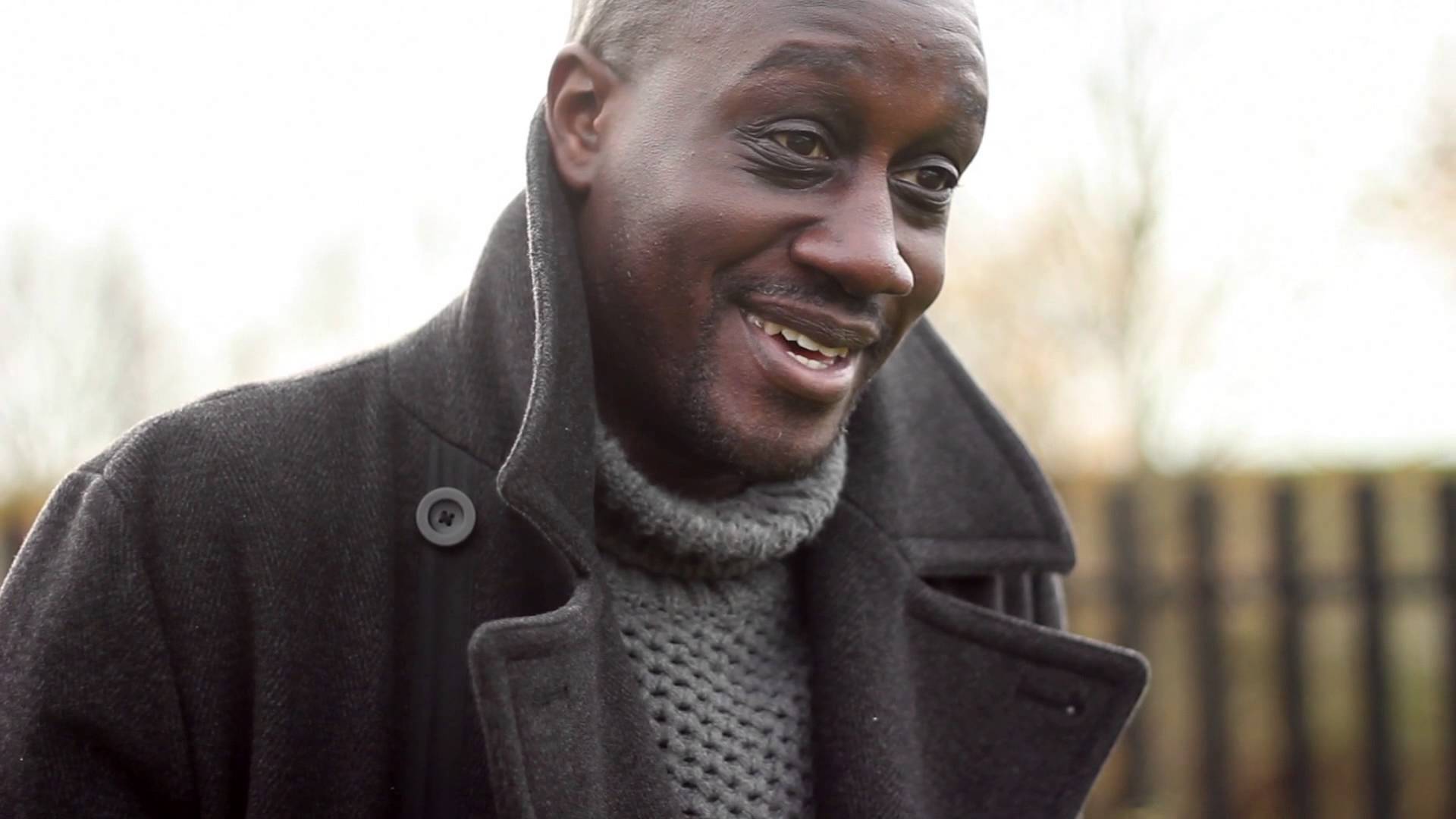
Musa Okwonga is a British-Ugandan author and journalist who studied law at Oxford and now resides in Berlin. He is also a presenter, actor, musician and a model. Okwonga is a much-loved studio guest on news platforms such as The Independent, or the BBC Radio 4 ́s Today Programme and has, among others, also written for The Guardian, The News Humanist and the Financial Times. In his two books, A Cultured Left Foot and Will You Manage he thematizes his great passion, football. In 2015, his first poetry collection Eating Roses for Dinner was published.
Anabela Rodriguez is a Portuguese of Afro-Descendance, that is Coordinator of the Association Grupo Teatro do Oprimido of Lisbon and one of the mentors of the AMI-AFRO. An aesthetic experience on the specifics of the oppressions faced by African descendants that addresses artistically silenced topics such as racial, gender and class discrimination. An Artivist engaged in the rights for migrants and there descendants. A TO trainner, she is part of the teatre Company TOgether director by Barbara Santos.

Encanacion Rodriguez is currently the Chair of the Section of Women and Gender Studies in the German Sociology Association, member of the Rat für Migration (Council of Migration) and the ESA (European Sociology Association) Academic Board of RN32 ‘Sociology of Migration’.
She is a Principal Investigator at the Graduate School of the Study of Culture (GCSC), Justus-Liebig-University and a member of the advisory board of Wagadu (journal of transnational Women and Gender Studies).She has been invited to conduct master’s classes in various International universities.
She is also the initiator of the Research Network Queer Studies, Decolonial Feminisms and Cultural Transformations (QDFCT) at JLU and member of the Research Group Migration and Human Rights and "Vertrauensdozentin" for the Rosa Luxemburg Foundation and the Heinrich-Böll Foundation.
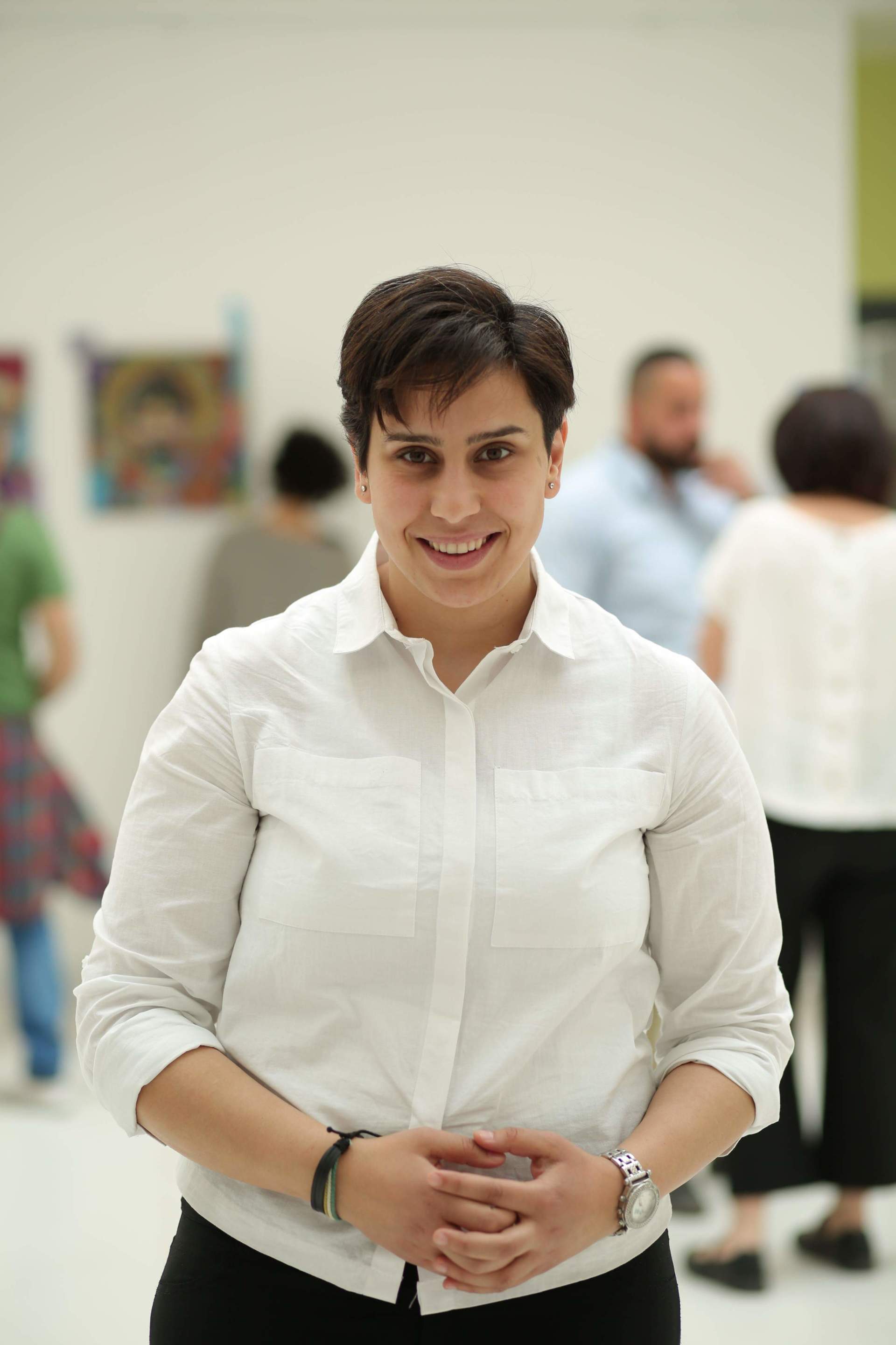
Nihayah Saadeh is a visual artist and photographer. She graduated in Contemporary Fine Art at Dar al-Kalima University and currently works as a coordinator at Bab idDeir Art Gallery in
Bethlehem. With special focus on Palestinian and gender identity politics, she seeks to portray human bodies in the entanglement with the laws of the universe.
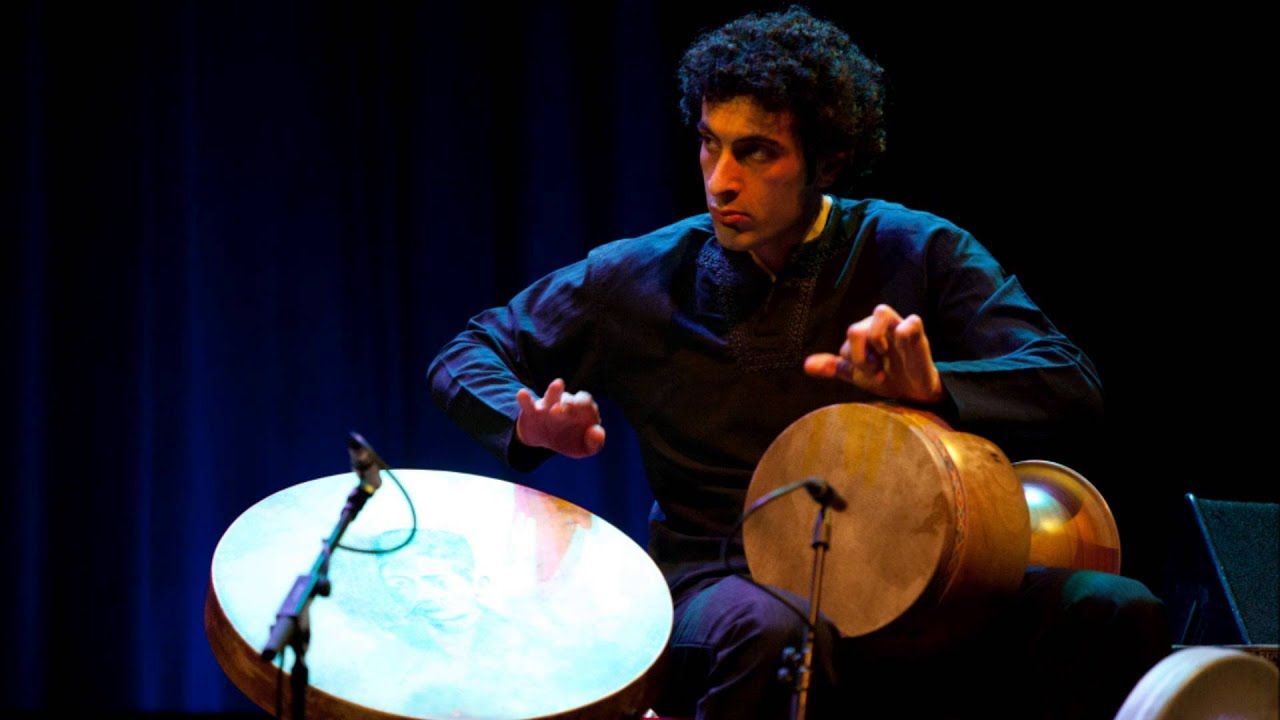
Jawad Salkhordeh wurde 1980 in Ghaemshahr (Nord-Iran) in einer Künstlerfamilie geboren. Schon als Kind kam er mit der traditionellen Musik der Region in Berührung, als er gemeinsam mit seinem Onkel Abdolhasan Khosroo, eine bekannte Stimme der mazandaranischen Folklore, musizierte. 2004 wird er von dem bekannten Tombak Meister Bahman Rajabi in Teheran als Schüler aufgenommen. In Teheran vertieft er zudem sein Können auf der Daf und der Setar (iranische Langhalslaute), auf welchen er auch regelmäßig Konzerte gibt. Es folgen viele internationale Konzerte und Studioaufnahmen, unter Anderem in Paris, Lyon, Rom, Hamburg und Berlin, sowie in Yerevan, Armenien. Seit 2010 lebt er in Berlin und spielt in zahlreichen internationalen Ensembles.
Sein Schaffen ist geprägt von der Suche nach neuen Klängen und der Balance zweier Welten, zwischen Tradition und Moderne. Seit 2018 unterrichtet er zudem Tombak und Daf an der Global School in Berlin.

Sepidar Theater Group
Das 2016 von den iranischen Theaterwissenschafts-Studierenden Bahareh Sadafi und Mamadoo Mehrnejad gegründete Sepidar Theater ist ein Kollektiv aus Kulturschaffenden verschiedener kultureller Hintergründe. Die in Dortmund und Bochum ansässigen jungen Künstler*innen arbeiten mit Formen des Puppen-, Objekttheaters und Physical Theatre. Thematischer Schwerpunkt ihrer Arbeiten ist ein philosophischer Blick auf zeitgenössische Fragen wie die nach Identität. Ihre erste Produktion "Der kleine schwarze Fisch", ein Schattentheater nach einem iranischen Märchen, kam 2016 in Bochum zur Premiere. Weitere Spieltermine fanden in verschiedenen Städten NRW´s statt. Die Arbeit wurde zum 45 Fritz-Wortelmann-Preis-Wettbewerb eingeladen.

Riem Spielhaus leitet am Georg-Eckert-Institut, Leibniz-Institut für Internationale Schulbuchforschung die Abteilung Wissen im Umbruch und ist seit April 2016 Professorin für Islamwissenschaft mit dem Schwerpunkt Bildung und Wissenskulturen an der Universität Göttingen am Institut für Arabistik/Islamwissenschaft.

Gülina aka Lina Sur is a Turkish German singer/songwriter and producer with Arab roots. Based in Berlin and raised between two cultures, Lina Sur challenges the patriarchal society as she fights for gender equality as an independent female musican. Her mixed identity also inspires the music she writes, produces and performs and is displayed in her international mixture of electronic beats and vocals.

Astrid Utler has previously worked with youth through an emphasis on intercultural perspectives in psychology. In her current project Utler outlines the main topics that her research participants with an immigration background associate with Germany. One core aspect being mentioned by her participants is care i.e. Germany (state and society) is perceived as caring for human beings, for animals and for nature.
Alice Pinheiro Walla has joined the department of Political Philosophy(Global Justice) in University of Bayreuth in May 2016. She is a Kant scholar by training, her research interests are Political Philosophy, Moral Philosophy, Legal Philosophy, and History of Philosophy. She applies Kant's theory to contemporary problems such as territorial rights, property rights, global governance, the justification of welfare rights, moral demandingness, and the relationship between prudence and morality. In her research, she aims at understanding the structure of rights and duties and providing a rigorous foundation for them.

Mai’a Williams is a writer, poet and editor who recently moved with her daugther from the U.S to Berlin. lives in the U.S. It was her living and working with Palestinian, Congolese, and Central American indigenous mothers in resistance communities, that initially inspired her to become a mother and continues to guide her as she practices this life-giving work, called radical mothering.
A Lazy Cat and Pi is a music project by Anata who moved to Berlin from Italy and Pi who recently migrated from Argentina to Berlin. Their musical collaboration is about exploring, composing and
performing deep acustic and electronic beats that move through the bodies and minds of their audience.
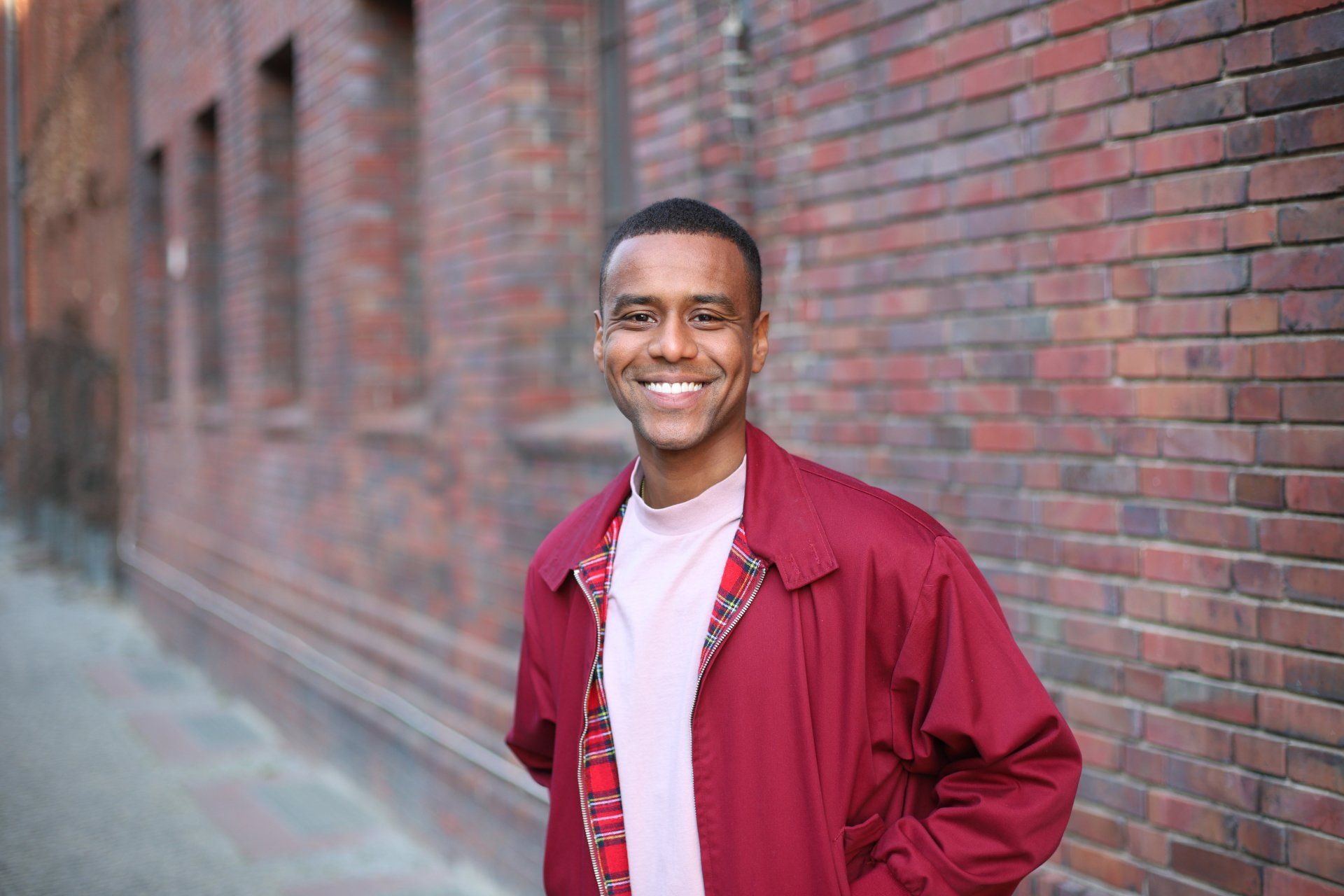
Tarik Tesfu ist Video-Kolumnist, Content Creator und seit 2017 Moderator bei Jäger & Sammler (ZDF). Getreu dem Motto: Das Ziel ist der Weg, zieht er nach dem Abitur nach Berlin, dann nach Wien, dann nach Köln, um dann wieder nach Berlin zu ziehen. In Berlin hat Tarik eine Ausbildung zum Erzieher absolviert, in Wien Medien-Dingsbums-Wissenschaften studiert und in Köln als TV-Redakteur gearbeitet. Als Feminist (Oha!) setzt er sich in seinen Videos für die Gleichberechtigung aller Geschlechter ein und zeigt dabei Rassismus, Sexismus, Homo-, Trans- und Islamfeindlichkeit den Stinkefinger. Tarik feiert Destiny`s Child, Wlan und Snickers-Eis: Yummy!
